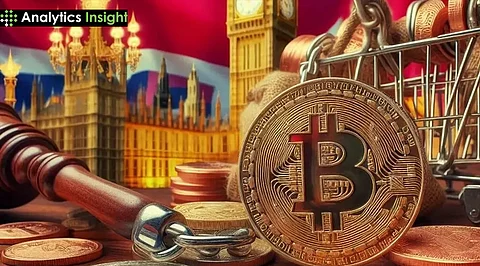
The United Kingdom has announced plans to compensate victims of a significant investment fraud involving the seizure of approximately $6.8 billion in Bitcoin. The fraudulent scheme, led by Chinese national Zhimin Qian through her company Tianjin Lantian, defrauded over 128,000 individuals in China between 2014 and 2017. Following Qian’s entry into the UK with forged documentation, authorities began confiscating the assets in 2018, culminating in one of the largest cryptocurrency recoveries worldwide by 2021.
In April 2024, Qian was arrested, during which she provided access to additional cryptocurrency wallets, enabling the Metropolitan Police to recover an extra £67.3 million in assets. Qian has pleaded guilty to charges related to the acquisition of criminal property, while another accomplice has already been convicted. The investigation was initiated following a first-time fraud case uncovered in Tianjin, which revealed the extensive scam that targeted retail investors.
Legal Framework for Compensation Under Review
The UK government is currently deliberating how to distribute the seized Bitcoin to victims. Prosecutors have indicated the potential introduction of a compensation program, but details regarding eligibility and payment procedures remain undisclosed. Legal representatives for affected investors have reported that numerous claims have already been filed in UK courts seeking recovery of lost funds.
William Glover, a lawyer representing some of the victims, highlighted the profound impact the fraud has had on families, marriages, and businesses, emphasizing the urgent need for restitution. Despite calls for a victim-first approach, legal experts caution that the government may retain possession of the confiscated assets under the Proceeds of Crime Act. Nick Harris, CEO of CryptoCare, warned that without a clear policy prioritizing victims, there is a risk that the seized funds could be redirected to support government budgets.
Global Implications of the Seizure
This case has drawn significant international attention and could influence global discussions surrounding the seizure of digital assets and victim compensation. The $6.8 billion seizure surpasses previous high-profile cases, such as the recovery of assets linked to the Silk Road. Current Bitcoin valuations, hovering around $111,436.30, further elevate the significance of such confiscations.
Market analysts suggest that the outcomes of this case may shape future policies on how governments manage confiscated cryptocurrency. While the United States currently retains billions in digital assets, Germany has opted to sell off its holdings. The UK now faces the challenge of balancing public interest, victim justice, and regulatory precedents in the wake of this unprecedented seizure.
As the UK government navigates this complex landscape, the impact on victims and the broader implications for cryptocurrency regulation remain at the forefront of discussions.







